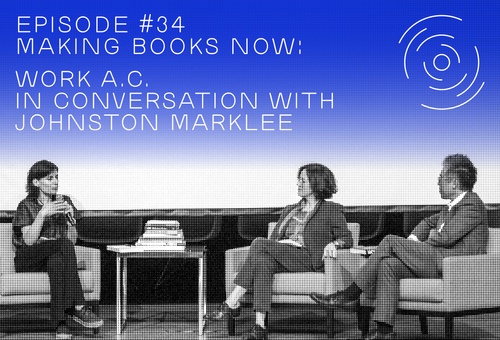A
AIA CES Credits
/aiacescredits
AV Office
321M Fayerweather Hall
Christopher Day, Kane H. Chiang, Ben Goldie
/audio-video-off…
Abstract Publication
415 Avery Hall
Ilana Curtis
/abstract
Academic Affairs
400 Avery Hall
Danielle Smoller
/academic-affair…
Academic Calendar, Columbia University
http://registrar…
Academic Calendar, GSAPP
/academic-calend…
Admissions Office
407 Avery Hall
1172 Amsterdam Avenue
New York, New York 10027
1172 Amsterdam Avenue
New York, New York 10027
Steffen Boddeker, Sara Konekeo, Monisola Fakiyesi
/admissions
Advanced Standing Waiver Form
Must be printed and returned to 400 Avery Hall
https://d37vpt3x…
Alumni Board
/alumni/board
Alumni Office
405 Avery Hall
1172 Amsterdam Avenue
New York, New York 10027
1172 Amsterdam Avenue
New York, New York 10027
Leah Cohen, Esther Turay, Elizah Laurenceau
/alumni/contact
Anti-Racism Curriculum Development Award
/anti-racism-act…
Architecture Studio Lottery
/architecture-st…
Assistantships
/assistantships
Avery Library
300 Avery Hall
1172 Amsterdam Avenue
New York, NY 10027
1172 Amsterdam Avenue
New York, NY 10027
http://library.c…
Avery Review
Joanna Joseph, Isabelle Kirkham-Lewitt
http://averyrevi…
Avery Shorts
Isabelle Kirkham-Lewitt, Joanna Joseph
http://www.avery…
B
Black Student Alliance at Columbia GSAPP
/bsa
Building Science & Technology Waivers
/building-tech-w…
Bulletin Archive
/bulletin-archiv…
C
COVID-19 FAQ
/covid-19-faq
COVID-19 Resources
/covid-19-resour…
COVID-19 Resources for the Columbia Community
https://covid19.…
Career Services
300M Avery Hall
Karen Cover, Rebecca Andersen Polimeda, Douglas Woodward, Sarahgrace Godwin
/career-services…
Climate
/climate
Columbia Books on Architecture and the City
Isabelle Kirkham-Lewitt, Joanna Joseph, Meriam Soltan, Isabelle Tan
/books
Commencement
/commencement
Communications Office
415 Avery Hall
Steffen Boddeker, Lucy Krebsbach, Ilana Curtis
/communications-…
Conversations podcast
/conversations
Counseling and Psychological Services
http://health.co…
Courses
/courses
Credentials Verification
/credentials-ver…
Credit Transfer
/credit-transfer…
Cross Registration
/cross-registrat…
D
Data & Design
/data-design
Dean’s Letter
/deans-letter
Dean’s Office
402 Avery Hall
1172 Amsterdam Avenue
New York, NY 10027
1172 Amsterdam Avenue
New York, NY 10027
Janet Reyes, Sonya Marshall, Nicholas Roberts, Caio Major, Matthew Colunga
/deans-office
Dean’s Unlearning Whiteness Research Award
/anti-racism-act…
Development Office
404 Avery Hall
Leah Cohen, Esther Turay, Elizah Laurenceau
/development-off…
Directory of Classes (All Columbia University)
http://www.colum…
Disability Services
http://health.co…
Dodge Fitness Center
3030 Broadway Dodge
https://perec.co…
Dual Degree Program Requirements
/dual-degree-req…
E
End of Year Show
/eoys
Equity
/equity
Events Office
415 Avery Hall
Steffen Boddeker, Lucy Krebsbach
/events-office
External Funding Sources
/admissions/tuit…
F
Faculty Directory
/faculty
Feedback
/feedback
Finance Office
406 Avery Hall
Janet Reyes, Kristina Camaj, Amanda Seitz, Yesenia Ozoria Urena
/finance-adminis…
Fitch Colloquium
Sarahgrace Godwin, Jorge Otero-Pailos
/fitch
Future Anterior Journal
Jorge Otero-Pailos, Sarahgrace Godwin
/future-anterior…
G
GSAPP Community Fellowship Program
Alade S. McKen
/anti-racism-act…
GSAPP Emergency Fund
/gsapp-emergency…
GSAPPX+
/gsappxxplus
Grades
/grades
Graduation
/commencement
Graphics Project
Yoonjai Choi
/graphics-projec…
H
HEERF Program
/heerf-program
Honor System
/honor-system
Human Resources
Elizabeth Alicea, Amanda Seitz
/finance-human-r…
Hybrid Pedagogy Resources
/hybrid-pedagogy…
I
IT Helpdesk Ticket, GSAPP
https://bit.ly/2…
IT Office, GSAPP
Ben Goldie, Alvaro Gamboa, Christopher Hou, Roberto Marsach Jr., Nicholas Martucci, Diego Patino Toro, Hannette Un
/it-support
IT, Columbia University (CUIT)
http://cuit.colu…
Identity
/identity
Incubator Prize
/research/gsapp-…
International Students and Scholars Office (ISSO)
http://www.colum…
N
News and Press Releases
/news
Newsletter Sign Up
https://columbia…
Non-Discrimination Statement and Policy
/non-discriminat…
O
Onera Prize for Historic Preservation
/onera-prize
Online Admissions Application
GSAPP Admissions
407 Avery Hall
https://apply.gs…
Output Shop
116 Avery Hall
1172 Amsterdam Avenue
New York, NY 10027
1172 Amsterdam Avenue
New York, NY 10027
Carlito Bayne, Sherly Orilas
/output-shop
Ownership of Student Work Policy
/ownership-of-wo…
P
Paris Prize, Buell Center
/buell-paris-pri…
Paul S. Byard Memorial Lecture Series
/byard-lectures
Percival & Naomi Goodman Fellowship
/goodman-fellows…
Plagiarism Policy
/plagiarism-poli…
Policies & Resources
/policies-resour…
Press Releases
/news
Publications Office
407 Avery Hall
1172 Amsterdam Avenue
New York, New York 10027
1172 Amsterdam Avenue
New York, New York 10027
Isabelle Kirkham-Lewitt, Joanna Joseph, Meriam Soltan, Isabelle Tan
/books
R
Registration
/registration
Registration: Add / Drop Form
https://apply.gs…
Room Reservations
/room-reservatio…
S
STEM Designation
/stem
Satisfactory Academic Progress
/satisfactory-ac…
Scholarships
/admissions/tuit…
Skill Trails
Dan Taeyoung
https://skilltra…
Student Affairs
400 Avery Hall
Danielle Smoller, Emily Dennis
/student-affairs…
Student Awards
/student-awards
Student Conduct
/student-conduct…
Student Council (All Programs)
/student-council…
Student Financial Services
http://sfs.colum…
Student Health Services at Columbia
http://health.co…
Student Organization Handbook
/books/reader/59…
Student Organizations
/student-organiz…
Student Services Center
205 Kent Hall
https://ssc.colu…
Student Services Online (SSOL)
https://ssol.col…
Student Work Online
/student-work
Studio Culture Policy
/architecture-st…
Studio Procedures
/studio-procedur…
Summer Workshops
/summer-workshop…
Support GSAPP
https://arch.giv…
Episode #34
